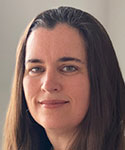3 Ways to Evolve Accounting Education
By Brigid D'Souza, CPA, MBA, Saint Peter's University –
October 18, 2022

The window on the current CPA Exam format is quickly closing, making the new CPA Evolution licensure format an imperative classroom focus. Accounting professors serve as tip-of-the-spear resources to help students understand the new format and should be adjusting both curriculum and classroom learning approaches.
CPA Evolution maps to current market trends, reflecting increased demand for CPAs who can double as technologists and think more critically within problem-solving, client service environments. At Saint Peter’s University, where I currently teach undergraduate students and also serve as the departmental CPA advisor, we have been adjusting our focus since last fall and will continue to do so as more resources emerge from the American Institute of CPAs (AICPA), National Association of State Boards of Accountancy (NASBA) and more.
Here are three ways that educators can better prepare students for CPA Evolution:
1. Update Student Advising Language
Educators should map student advising language to the new CPA Evolution Model Curriculum. The new model uses a “core + discipline” approach; this language frames what students need to already be doing: mastering the core accounting curriculum but also thinking of a “discipline” focus for the job market.
The core represents the spine of the typical accounting major requirements. The discipline represents a direction that a student can specialize in for purposes of taking the new CPA Exam. The three disciplines are:
- Business Analysis and Reporting, including research, government and nonprofit accounting and advanced accounting topics
- Information Systems and Controls, including risk assessment, tests of internal controls and system and organization controls (SOC) engagements
- Tax Compliance and Planning, including individual and corporate taxation
The disciplines can be framed as a focus for electives, potential minors and potential graduate-level courses but also as a pathway into the workforce.
2. Integrate Technology
Technology, data analysis and data visualization should be integrated into every course, including fundamentals of accounting. Accounting textbooks have been integrating data-intensive skills for years; more is likely to come as they adapt to the new licensure requirements. Students should also be increasingly pushed into technologies like spreadsheets, data visualization software and coding.
Educators can do this as early as the fundamentals in accounting courses. For example, I asked my students to create a balance sheet from scratch within a spreadsheet, using ledger data pulled from a textbook exercise. This was a simple yet powerful exercise that required me to build more time into the lesson as the students struggled to master the spreadsheet environment in addition to learning the fundamentals of accounting. The most basic spreadsheet tasks — such as widening columns or merging cells, writing formulas and learning data types, and separating the account name from the account balance into separate cells — was time consuming for them to master. That was time I needed to create in my class, but it was worth it; it gave students the space to act in two spheres at once — accounting and technology — which is what the workforce is demanding of them. Educators must give students that experience in the classroom.
Accounting programs can also adjust on a macro level. In fall 2021, Saint Peter’s University launched “Microsoft Excel for Accounting & Business Environments,” and the course is now a required computer science course for accounting majors.
3. Bring in Guest Speakers
Educators should leverage guest speakers, particularly recent graduates who are working at the staff level. Current accounting students are learning during an exciting and rapidly changing time in the profession. Bringing in guest speakers can help classrooms remain connected to the profession. Once again, this is time that professors must surrender, but benefits abound. Last semester, I invited two former students back to speak. Their insights were immediate, concrete and relatable to students in the classroom and generated deeper discussions around concerns that many students felt about entering the workforce, approaching CPA Exam prep and more.
Adjusting curriculum and classroom learning towards CPA Evolution and the 2024 Exam changes is an imperative for the college classroom. Professors and program leaders must help their students enter the 2024 paradigm prepared to not just pass the CPA Exam but thrive in a new and exciting career.
 | Brigid D'SouzaBrigid D’Souza, CPA, MBA, is an assistant professor and CPA advisor at the Frank J. Guarini School of Business at Saint Peter’s University. She is a member of the NJCPA and can be reached at bdsouza@saintpeters.edu. More content by Brigid D'Souza: |